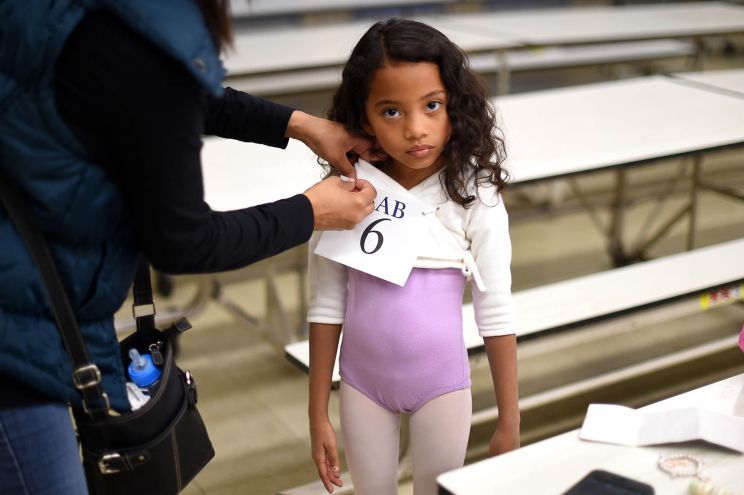How to Prepare Your Child for Their First Audition
BY VICTOR LOPEZ
Congratulations! Your child just received their first invitation to audition for a role in an amateur or professional capacity. This is an incredibly exciting opportunity for your child to gain some experience as a performer. However, as a parent, you may be just as nervous as you are thrilled about this process. As your child and you are just dipping your toes into the world of auditions and working in the performing arts industry, it’s understandable that you are flooded with questions about preparing your child for their first audition.
Fortunately, the staff at Lopez Studios
have been through this process countless times. As a result, we are well-practiced in helping children at our performing arts preparatory school
smash their first audition. Here is a brief overview of what to do to feel more prepared for your child’s upcoming audition.
4 Tips For Preparing Your Child For Their First Performing Arts Audition
1. Talk to Your Child
In the hast of frantically preparing for the audition, planning your transport to the meeting, or setting up a quiet area in the house for a video call, it can be too easy to forget to sit down and just listen to your child and discuss the process with them.
Firstly, you need to ask your child how they feel about their audition and what they want to know about the process. Talking can help ease any anxieties and put your mind at ease as you can feel confident in their ability to know what to do and how to behave. The best thing to do is talk to your child and provide them with encouragement and positivity and get them excited about the audition process. This can help them enjoy the auditions and look forward to future call-backs or other roles.
It is important to us as Audition Coaches
that the kids are comfortable with the audition process. It can be scary for them, especially if they are just starting in the industry. Therefore, we encourage all parents to prioritize open communication when preparing for auditions. If you would like to chat with your child’s coach about the audition process and set up a meeting for your child to ask any questions they have that you cannot answer, we would be more than happy to arrange this if you contact our school.
2. Learning Lines
Of course, one obvious way you need to prepare for an audition is to rehearse their lines and help them feel confident in their ability to recall their words on cue.
Although this may seem like the most challenging part of the auditioning process, there are a few ways to relieve some of the nervousness surrounding forgetting their lines.
Most children respond well to practicing little and often. Revising lines can be seen as another chore even if they desire to work in the industry. Therefore, working on their lines a few times a day for just 5-10 minutes per session is a great way to reduce the friction of starting a task. Not only can short revision times help children pay attention but going over their lines more frequently can also improve their recall. Revising frequently can also improve their confidence,
which can help them reduce anxiety before the audition and focus on their acting skills.
3. Practice in Front of Others
After a few line learning sessions, it can help to allow your child to practice the scene in front of others, such as family members or friends.
Practicing in front of an audience your child already trusts can help them become more confident about their audition and reduce the embarrassment of acting or singing in public. However, it’s imperative that the child feels supported and encouraged by the people they perform to as a negative experience could worsen their anxiety.
If you don’t have anyone to practice with, you could also set up your camera or phone to record them to help them get used to performing with a viewer. This is also helpful as they can watch their practice audition and see how their movement comes across on camera.
You may have heard that casting directors prefer kids who act naturally in front of the camera. This is because the directors were kids who can bring a sense of authenticity and personality to the role. However, this doesn’t mean that they want a child who is underprepared or unconfident. They are looking for a balance between a confident and a well-prepared child who can bring the role alive.
4. What to Bring to the Audition
Preparing for an audition involves practicing for the performance. But you also need to do other things to prepare for the noteworthy day.
First, it’s important to ensure your child’s needs are met. For example, ensure they have a decent breakfast, preferable a long-lasting energy breakfast such as protein and a good night’s sleep the night before.
You will then need to arrange the materials required for the audition. Your agent (if you have one) should be able to provide you with a list of things the casting director requires, or you can use this list to check off the most commonly needed items for an audition:
● Snacks.
● Water.
● Headshots.
● Resume of previous performances and experience.
● Something to keep your child’s mind occupied while they wait or during travel to the audition. Bringing homework, books, or quiet games can help your child feel more relaxed and distract them before the audition, so they do not overthink the process.
● Any instruments they play or copies of the music they need.
Start Getting Excited about Their First Audition!
If you are already part of our school for performing arts
in the Washington DC Metro area, you can message us today
with any more questions about preparing for auditions. If you are particularly interested in learning more about preparing for auditions, you may wish to book a private coaching sessions with a coach.
Whether you choose to book a coaching session or prepare at home, it’s important that as their parent you act as their biggest cheerleader. Showing your child support during this process can help them feel secure that no matter how the audition goes, you will be proud of them and support them.
RELEVANT RESOURCES TO EXPLORE
COMING SOON!










